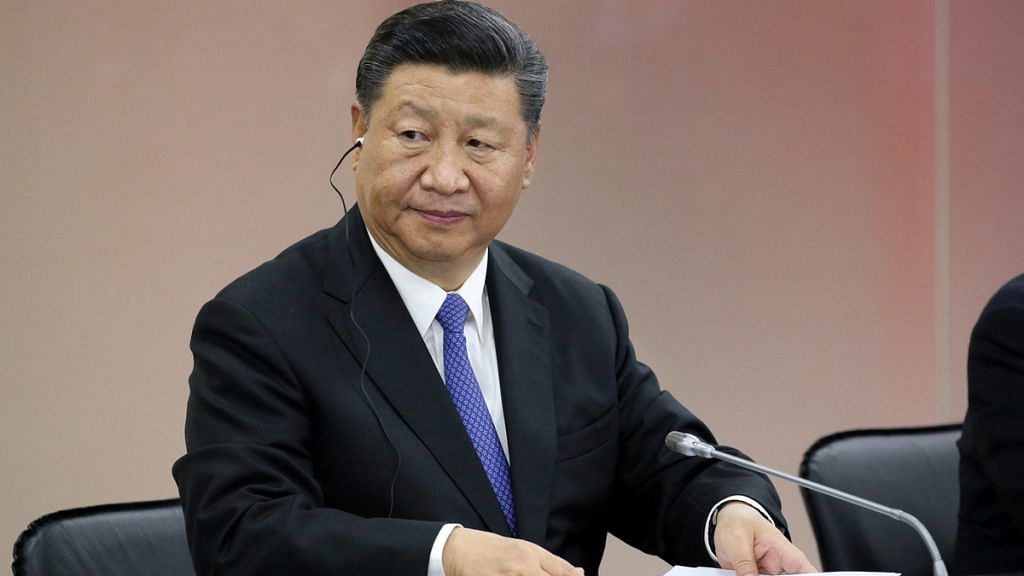New Delhi: The world is moving from the US-centric unipolarity of the Cold War era to China-centric bipolarity, and this new world order is weighted more towards China.
Thus, while the Indian military can handle challenges on the ground if push comes to shove in Ladakh, the point is that India is looking at a completely altered global balance of power and reality, said ThePrint’s Editor-in-Chief Shekhar Gupta in episode 492 of ‘Cut The Clutter’.
The rise of China is an inevitability but Chinese premier Xi Jinping doesn’t particularly care about the consequences of this rise. If it destabilises the world, then it is the problem of the world. And if it destablises Asia, then it is Asia’s problem.
We have to learn to accept this new reality of an expansionist, arrogant, and ambitious China, Gupta said.
So, China’s military standoff in Ladakh is to give India the message about its growing dominance, and this same message is being extended to other countries that have a dispute with China — Indonesia, Vietnam, Australia, the Philippines, and Hong Kong.
In fact, this is China’s message to the whole world.
Also read: Why the US can’t end China’s control of the global supply chain
China’s dispute with the Philippines and Indonesia
Many like to argue that China’s military dispute with India is due to India’s increasing closeness with US. However, this argument doesn’t hold much water when China’s ongoing dispute with other countries are analysed, as C. Raja Mohan pointed out in his column for The Indian Express.
For instance, China and Indonesia are disputing over the Natuna Sea — which is nearly 1,500 km from the Chinese mainland. The Chinese claim their own exclusive economic rights there, according to Mohan. Now, Indonesians have gone to the United Nations over this dispute, and President of Indonesia Joko Widodo even visited the Natuna islands, to assert his sovereignty.
So, while one might want to believe that India is facing China’s ire because it is joining hands with US, nothing of this sort holds true for Indonesia. Indonesia isn’t even close to the US and was a founding member of the Non-Aligned Movement.
Let’s also look at the example of the Philippines.
The Philippines is among the oldest allies of US in Asia and has always had American troops on its soil. However, when Rodrigo Duterte came to power as the president of the Philippines in 2016, he thought he would do away with this influence.
He began embracing China and even visited the country. He reached out and thought he could use this outreach and his distance from US to get the Chinese to settle their maritime border dispute with the Philippines
In February this year, Duterte had said he was abrogating the Visiting Forces Agreement with US and thereby withdrawing the rights for American soldiers to be on the Filipino soil. Even after that, China kept pushing at him.
So, last week, Duterte said he was suspending that decision, which means the Philippines will carry on being an ally of the Americans and will continue under the American Security umbrella.
Both of these are two very different situations: Indonesia, which had nothing to do with US is being pushed around by China, and the Philippines, which decided to stop being an American ally and reached out to China with the hand of friendship was also rebuffed by it.
This tells us that the idea that China is pushing India because the latter is getting friendly with US is simplistic and too narrow.
Also read: CPEC is China-Pakistan corruption corridor. This challenges Indian security in new ways
China aware of its own superiority
China is also aware that it is much stronger than India. It has an economy of $14 trillion, while India’s will be less than $3 trillion this year. So, it’s five times as big as India.
As a result, China now thinks it enjoys sufficient military, economic, political and diplomatic superiority compared to all its neighbours to shift the borders as it wants.
China also realises it is way more powerful than US.
For all his heavy boasting and talk, US President Donald Trump has completely undermined his country’s power. It’s exactly the opposite of how a big power should exercise its influence and authority.
This imbalance and vacuum created by Trump is what China has moved into. It just so happens that we live in China’s neighbourhood.
Watch the latest episode of CTC here:
